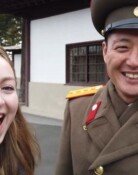[Editorial] By-elections Show Koreas Backward Politics
[Editorial] By-elections Show Koreas Backward Politics
Posted April. 30, 2009 09:08,
Yesterdays parliamentary by-elections held in five districts clearly showed Koreas backward politics. One candidate even bolted from his party to run, showing just how distorted domestic politics is. The by-elections also showed that Koreas regionalism has not improved at all. Certain candidates even ignored market principles to lure voters with popular policies. The ruling partys slogan of economic recovery and the opposition partys slogan of "judgment of the ruling party" rang hollow.
Chung Dong-young, who ran for president as the candidate of the Democratic Party in 2007, bolted and ran in the by-elections as an independent candidate after confronting party leaders. From every point of view, Chungs decision goes against good cause. When he ran in the general elections a year ago, he promised not to leave the Seoul district of Dongjak. He broke that promise, however, to run in his political hometown of Deokjin in Jeonju, North Jeolla Province. The only word that can explain Chungs decision is "regionalism." He even formed an alliance with Shin Kuhn, who ran in Jeonju`s Wansan district. Undeniably, Chung is making fun of party politics. A vision reflecting the main opposition partys future and policies could not be found in the campaign. Instead, Democratic Party candidates and Chungs alliance simply resorted to verbal attacks to determine who is better for the Jeolla provinces. A considerable number of Democratic Party members have taken an equivocal attitude between the party and Chung. Some even said a few party members supported the Democratic Party by day but sided with Chung by night.
Party politics were also challenged in Gyeongju, North Gyeongsang Province. In the region, the ruling Grand National Partys Jeong Jong-bok, who is close to President Lee Myung-bak, and independent candidate Jeong Soo-seong, close to former party leader Park Geun-hye, had a proxy war on behalf of the two political leaders. Ruling party members close to Lee fully supported Jeong since the result of yesterdays by-elections will significantly impact the partys power structure in the run-up to next years local elections. Moreover, supporters of the two candidates even urged their opponent to withdraw his candidacy. Park took a neutral stance but her response was inappropriate for a responsible party member. The future of the Grand National Party is precarious since yesterdays by-elections showed intra-party rifts once again.
In the Bupyeong district of Incheon, the only one in the Seoul metropolitan area among the five districts, political leaders from the ruling and opposition parties ignored market principles and recklessly suggested unrealistic policies to revive the struggling GM Daewoo Auto and Technology, while distorting the meaning of parliamentary elections. This is a prime example of political populism. The irresponsible attitudes of politicians are also why General Motors Chief Financial Officer Ray Young preemptively asked the Korean government to provide financial support, while even suggesting the possibility of giving up GM Daewoo.
The by-elections showed Koreas regionalism has not improved at all since the Democratic Party failed to win support in Gyeongju and the ruling party lost in Jeonju. In Ulsan`s Buk district, the Democratic Labor Party and the New Progressive Party fielded a unified candidate after conducting an opinion survey and the Democratic Partys candidate withdrew his candidacy to support the unified candidate. That means fair competition among parties was overwhelmed by political engineering. Yesterdays parliamentary by-elections were just a cheap political show to obtain seats on the National Assembly.







